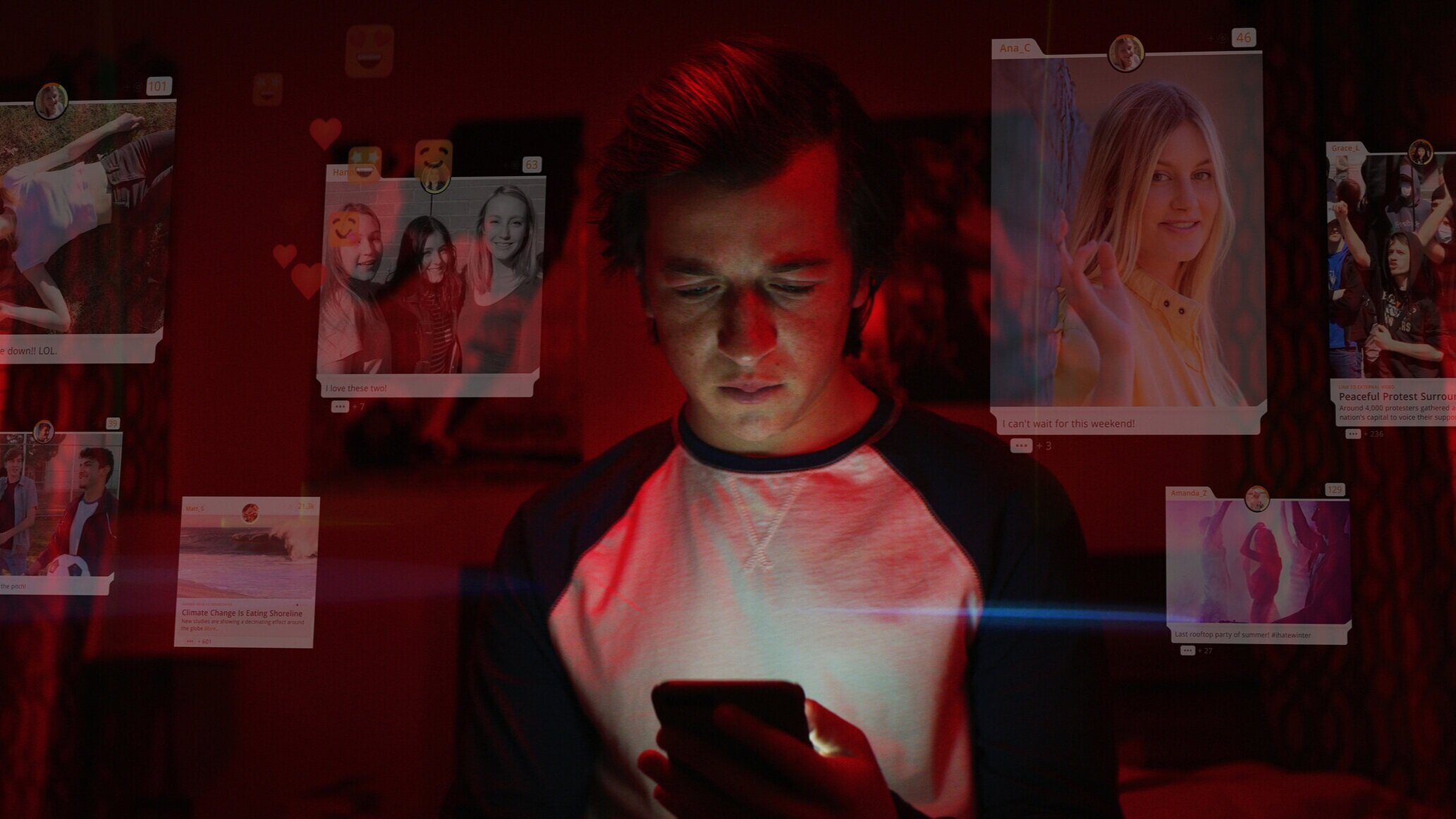The Social Dilemma
Jeff Orlowski's latest polemic is a vigorous indictment of the insidious manipulation and control exercised by Internet platforms.
Programmed addiction
It’s a fact that millions of people believe the coronavirus is a real thing. In a YouGov survey it was revealed that one in six Americans were not convinced the earth was round. And the leader of one of the three most powerful nations on earth suggested that maybe we could inject bleach into our veins to fight off that fictitious virus. Hard as it is to believe, people will believe anything. The thing is, with the influence of global, profit-hungry organisations like Google, Twitter and Facebook, we can no longer agree on what is true. Apparently, fake news travels six times faster on Twitter than the truth – because the truth is boring.
Many a documentary rises or falls by the conviction of its talking heads. In Tristan Harris, former ‘design ethicist’ at Google and co-founder of the Center for Humane Technology, it has an engaged, charismatic presence whose views embody the substance of the film. The Social Dilemma is anything if not clear: social media, search engines and multinational technology companies like Amazon are destroying civilisation. As Harris says, if a product appears to be free, then we are the product. Borrowing its title and logo from David Fincher’s The Social Network (2010), the film jumps forward one whole decade and sees the mess that Mark Zuckerberg and his ilk have left us in.
Much of The Social Dilemma, directed and co-written by Jeff Orlowski – who won the Emmy for his climate change documentary Chasing Ice (2012) – regurgitates the familiar. But its cumulative effect, and its neat introduction of a fictitious teenage protagonist called Ben (played by Skyler Gisondo), punches home its message with articulate, frightening urgency. In amongst the on-camera declarations by well-informed doom-mongers like Harris, Aza Raskin and Jaron Lanier, Ben attempts to survive a whole week without his mobile phone (spoiler alert: he fails). He, along with millions of teenagers like him, gobble up the digital ephemera fed them in order to sustain the appetite for data by the monsters of Silicon Valley. The more data the companies harvest, the bigger the profit margin – and to hell with the mental health of the next generation. Since the proliferation of social media, the hospitalisation of pre-adults from self-harming and attempted suicide has jumped exponentially. No self-respecting school child can live up to the avatar of perfection with which they are spoon-fed.
But beyond scrambling the egos and expectations of an entire generation, the Internet is displaying an even graver trend. It is promoting civil war. According to one pundit, more than a third of Republicans in the US say that the Democratic party is a threat to the nation, while more than a quarter of Republicans say the same thing about the Democrats. Come the third of November 2020, well… watch this space. Even scarier is that when people in Myanmar purchase a mobile phone, Facebook is already installed on the device. And on that version of Facebook – indistinguishable from the World Wide Web – the military posted anti- Rohingya propaganda, resulting in the largest case of human migration in recent history.
The fact is, nobody can no longer agree what is true. Depending on who or where you are, the same request typed into a Google search engine will offer up different results. In the words of data researcher Renée DiResta, “what we are seeing is a global assault on democracy,” and, perhaps more emotionally, US Senator Jon Tester opined: “when all this shit comes to fruition… it scares me to death.” The venture capitalist and musician Roger McName reasons that, “if everyone is entitled to their own facts, there’s really no need for compromise, no need for people to come together. [But] we need to have some shared understanding of reality.”
It hasn’t been a vintage year for horror films, but this is one scary entry.
JAMES CAMERON-WILSON
Featuring Tristan Harris, Aza Raskin, Justin Rosenstein, Shoshana Zuboff, Jaron Lanier, Skyler Gisondo, Kara Hayward, Vincent Kartheiser, Jonathan Haidt, Cathy O'Neil, Rashida Richardson, Anna Lembke, Roger McNamee, Renée DiResta, Jon Tester.
Dir Jeff Orlowski, Pro Larissa Rhodes, Screenplay Davis Coombe, Vickie Curtis and Jeff Orlowski, Ph John Behrens and Jonathan Pope, Pro Des Adam Wheatley, Ed Davis Coombe, Music Mark A. Crawford, Costumes Suzie Ford and Melissa Karsh.
Exposure Labs/Argent Pictures/The Space Program-Netflix.
93 mins. USA. 2020. Rel: 9 September 2020. Available on Netflix. Cert. 12.


